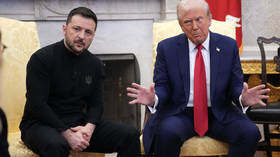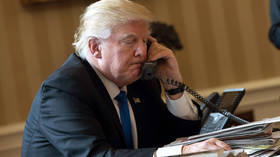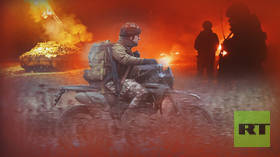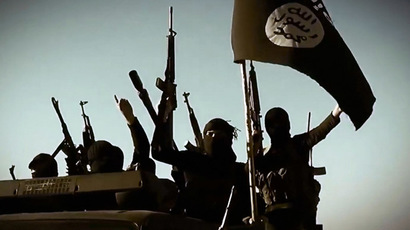US Senate gives Obama authority to arm 'moderate' Syrian rebels
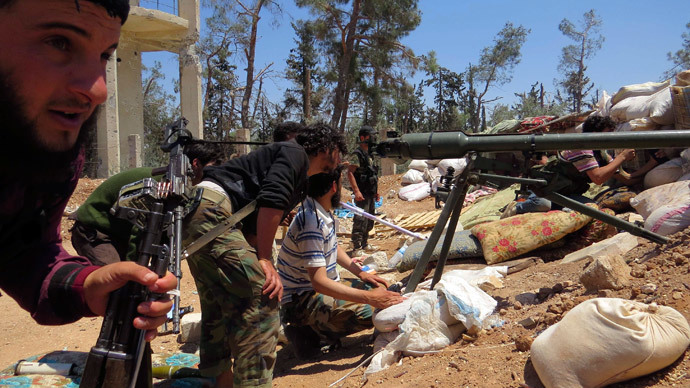
The Senate has passed a bill authorizing President Barack Obama to begin arming "moderate" rebels in Syria as part of a plan to step up the US military campaign against Islamic State militants.
The bill, which easily passed Thursday by a vote of 78-22, is headed to Obama’s desk for his signature.
It allocates $500 million not only to the arming and training of Syrian rebels, but also to the expansion of US military action in Iraq.
Included in the bill is also the extension of US government funding until December 11.
Speaking shortly after Congress approved his plan, Obama welcomed the bipartisan vote.
"The House and the Senate have now voted to support a key element of our strategy,” he said. "We are strongest as a nation when the President and Congress work together."
"When you harm our citizens, when you threaten the United States – it doesn’t divide us, it unites us," Obama added.

He also reiterated once again that “American forces deployed to Iraq do not and will not have a combat mission." This pledge has been questioned over the last few days, particularly when the chairman of the Joint Chiefs of Staff said he’d go back to the president and ask for ground troops if the situation in Iraq worsens.
READ MORE:Obama insists ground troops will not join ISIS fight, US military less sure
"The House and the Senate have now voted to support a key element of our strategy." —Obama on our strategy to degrade and destroy #ISIL
— The White House (@WhiteHouse) September 18, 2014
Although the bill passed with majority support from both Democrats and Republicans, lawmakers on both sides of the aisle expressed concern over the idea that Obama can now enter the conflict in Syria without Congress updating its previous Authorization for Use of Military Force (AUMF). Some lawmakers believe that without such approval, the use of force against the Islamic State could be unconstitutional.
Senate Majority Whip Dick Durbin (D-Ill.) said that even though Congress has granted Obama the authority to arm and train Syrian rebels, lawmakers need to begin considering the passage of a new war authorization.
"We have a special responsibility given to us by the Constitution that says the American people declare war, not the president," Durbin said, as quoted by the Huffington Post. "So we will come back and start the debate on what's known as [an AUMF], a modern version...It's a debate that's long overdue."
Sen. Rand Paul (R-Ky.), who voted against the proposal, criticized it for potentially arming the same rebels that are fighting alongside Islamic State militants in the Syrian civil war against Bashar Assad. He said he would vote for a new war authorization, but slammed "the wrong way" in which Congress was currently approving such a program.

“It’s not that I’m against all intervention, I do see [the Islamic State] as a threat to us – but I see our previous policy as having made it worse,” said Paul, according to the Guardian. “There are valid reasons for war. They should be few and far between...They should not be [hidden] in the pages of a 1,000-page bill and shuffled under the rug.”
The language concerning Syrian rebels was also tucked into a larger continuing resolution that funds the government until December 11, avoiding – for now – the kind of government shutdown that plagued Washington last year.
American officials have pointed to Syrian rebels as a potential ally in the war against the Islamic State, though reports last week stated that moderate rebel groups have apparently struck a deal with militants to not fight each other and focus on toppling Assad’s government. Concerns have also been raised over the possibility that moderate rebels, viewing Assad as their main enemy and not the Islamic State, could turn over US weapons to militants fighting Americans.
The moderate rebels who signed the deal include four distinct groups, including the US-backed Syria Revolutionary Front, reported Charles Lister, an analyst at the Brookings Institute. The SRF – a part of the Free Syrian Army – was considered moderate enough to merit the West’s support.


